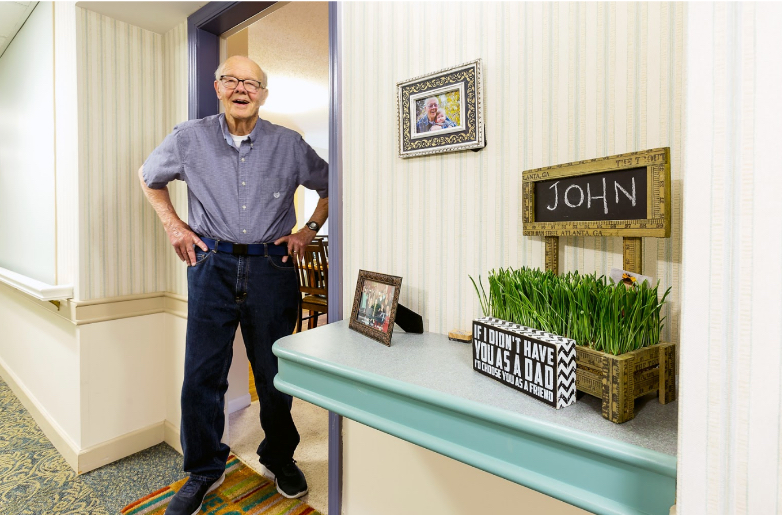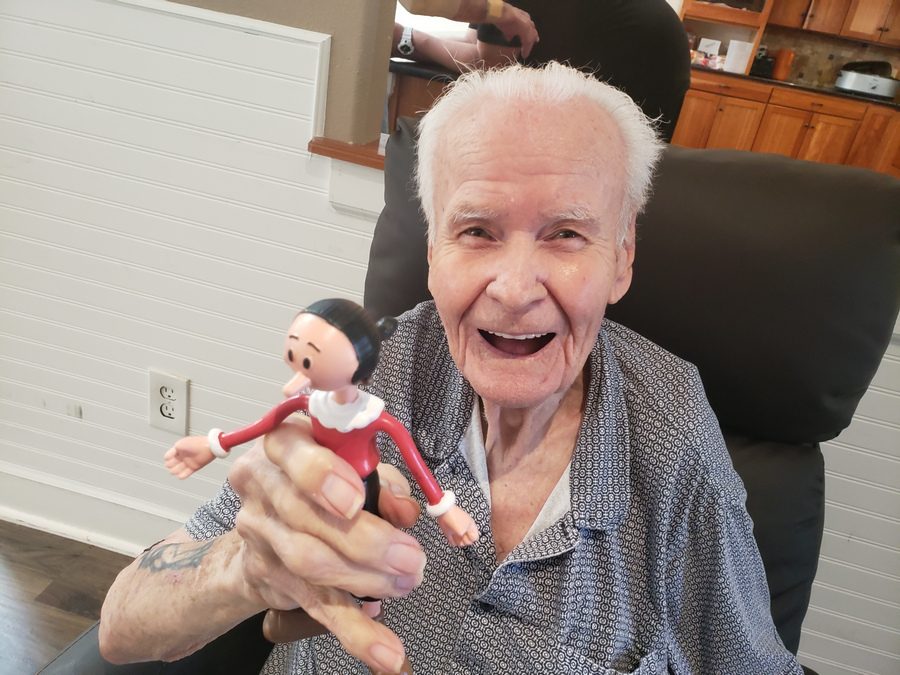How Boutique Memory Care Enhances Daily Living for Older Adults
How Boutique Memory Care Enhances Daily Living for Older Adults
Blog Article
Everything About Memory Treatment Services: Why Tiny Memory Treatment Homes Are a Fantastic Option
Memory care services play a crucial role in supporting people with Alzheimer's and dementia. Tiny memory treatment homes stand out for their customized strategy and intimate setup. With reduced staff-to-resident ratios, these homes promote more powerful links and customized care. Citizens gain from improved social communications and a secure atmosphere. As families check out alternatives, understanding the unique benefits of little memory treatment homes becomes vital. What aspects should be thought about when picking the best home?
Understanding Memory Treatment Services
While several may be acquainted with general elderly care alternatives, recognizing memory treatment solutions is necessary for family members encountering the obstacles of cognitive decrease. Memory care specifically satisfies people with problems such as Alzheimer's illness and various other forms of mental deterioration. These services give a structured atmosphere that concentrates on boosting the quality of life for citizens through specialized care and support.Memory treatment centers are created to ensure safety and security and protection, frequently featuring secured atmospheres to stop wandering. Trained team participants are offered around the clock to assist with everyday tasks, drug management, and personal treatment. In addition, memory care programs typically consist of cognitive excitement activities, customized to engage citizens and advertise mental wellness. Households can gain from understanding these services, as they enable informed choices concerning their liked ones' treatment, making certain that their certain demands and choices are resolved in a helpful and caring way.
The Advantages of Little Memory Treatment Homes
Small memory care homes provide distinctive advantages that can considerably improve the top quality of life for residents with cognitive impairments. One considerable advantage is the intimate setting, which permits tailored interactions among personnel and citizens. This smaller setup cultivates significant connections, minimizing sensations of seclusion and anxiety typically experienced by individuals with memory issues.Additionally, the reduced staff-to-resident ratio in little memory treatment homes allows caregivers to offer more conscientious supervision and support. This approach not only enhances safety and security yet likewise advertises a complacency for the residents.Moreover, little memory treatment homes can adjust promptly to the unique demands and choices of each homeowner, permitting a much more homelike environment. Such an environment can encourage social interaction and engagement in activities, ultimately enhancing the everyday experiences of those living with cognitive impairments.
Personalized Care Program for Locals
Customized treatment plans are essential in memory care homes, as they accommodate the special demands and choices of each homeowner. These strategies start with complete evaluations conducted by experienced professionals, who assess cognitive capacities, clinical history, and individual rate of interests. This customized technique warranties that care is not just reliable yet additionally considerate of each person's dignity and autonomy.Moreover, customized treatment plans are adaptable, enabling adjustments as locals' demands evolve with time. This adaptability promotes a complacency and knowledge, which is essential for individuals dealing with memory obstacles. Caretakers are trained to carry out these strategies regularly, giving assistance that aligns with the locals' regimens and preferences.Ultimately, personalized treatment strategies boost the top quality of life for residents by promoting interaction, wellness, and independence, making them a fundamental facet of memory care services in little memory treatment homes.
Producing a Home-Like Setting
Producing a home-like environment is important for fostering comfort and knowledge in memory treatment setups, as it greatly affects locals' emotional well-being. Tiny memory treatment homes typically prioritize customized touches, such as cozy shade palettes, family pictures, and familiar furniture setups, which help residents really feel a lot more secure. Integrating components similar to a traditional home, like relaxing living spaces and common locations, encourages a feeling of belonging.Moreover, using all-natural light and outside areas can improve the atmosphere, advertising leisure and peace. Employee play a considerable role in maintaining this atmosphere by involving with citizens in a thoughtful fashion, treating them like household. Regular tasks, such as cooking or horticulture, can also contribute to a home-like feeling, supplying opportunities for residents to join significant experiences. Generally, producing a supporting environment supports cognitive function and emotional stability, making it an important facet of memory treatment services.
Boosted Social Communication and Area
Improved social communication and area are essential elements of memory treatment solutions. By cultivating personalized social engagement and producing a family-like environment, these services advertise purposeful click now links among locals. Group activities and events even more motivate involvement, assisting individuals feel much more included and supported.
Personalized Social Engagement
While social communication is essential for total well-being, many individuals with memory impairments often have a hard time to engage meaningfully with others. Personalized social interaction in memory care homes addresses this difficulty by producing tailored tasks that provide to citizens' distinct interests and abilities. By concentrating on specific choices, caregivers can foster links that resonate deeply with everyone. Tasks such as art therapy, songs sessions, and directed conversations advertise cognitive stimulation and psychological expression. In addition, little team setups urge friendship and allow for even more intimate interactions, improving feelings of belonging. This method not only battles sensations of isolation yet also equips residents to maintain a sense of identification, ultimately adding to enhanced mental health and wellness and quality of life.
Family-like Ambience
In a memory care setup, fostering a family-like environment considerably boosts social interaction and develops a feeling of neighborhood amongst residents. Smaller sized memory treatment homes typically focus on intimate atmospheres, permitting locals to create closer connections with one another and team participants. This nurturing environment promotes depend on, which is essential for individuals with memory impairments. Citizens are extra likely to engage in discussions and share experiences, producing a helpful network that relieves sensations of loneliness. The knowledge of shared areas and regimens adds to a feeling of belonging, even more motivating social communication (personalized memory care). In such setups, psychological bonds thrive, causing improved general wellness and a better of life for homeowners as they browse their daily experiences together
Team Activities and Occasions

Security and Safety Attributes in Tiny Houses
Numerous small homes developed for memory care include necessary security and safety and security functions to assure the well-being of residents. These homes usually make use of safe and secure entrance and leave indicate prevent straying, a common worry among people with memory disabilities. In addition, surveillance systems and alarm system systems boost surveillance, making certain that staff can without delay react to any uncommon activities.Interior designs are tailored for safety, with lessened risks such as clutter-free paths and sharp corners. Handrails and non-slip floor covering are usually installed to minimize the risk of falls. Team members are trained in emergency situation methods, guaranteeing they are planned for numerous situations.Moreover, individualized treatment plans may consist of analysis of specific safety and security requirements, supplying customized remedies for each citizen. Overall, these security and safety and security functions develop a nurturing atmosphere where citizens can thrive while maintaining their dignity and self-reliance.
Exactly how to Pick the Right Memory Care Home
Exactly how can households ensure they select the most suitable memory care home for their liked ones? The choice needs mindful factor to consider of numerous factors. Family members should examine the center's personnel credentials and training, ensuring that caregivers are experienced in handling memory-related problems. Next off, it's vital to evaluate the home's environment, concentrating on security features and whether it cultivates a feeling of neighborhood and belonging. Going to the facility can provide insight right into day-to-day tasks and the social ambience, which are necessary for psychological excitement and emotional health. Furthermore, families need to ask about the care plans supplied, guaranteeing they are tailored to individual requirements. Lastly, thinking about the home's location and accessibility for household gos to can contribute to a smoother shift. By attending to these facets, family members can make an enlightened choice that prioritizes their liked one's comfort and lifestyle in a memory treatment setting.
Frequently Asked Inquiries
What Qualifications Should Team Members in Memory Treatment Houses Have?
Personnel in memory care homes ought to possess pertinent read this post here qualifications, experience in dementia treatment, strong interaction abilities, and empathy. Ongoing training in behavioral management and restorative treatments enhances their capability to sustain citizens efficiently.
Just How Do Memory Care Services Differ From Traditional Assisted Living?
Memory care services focus particularly on individuals with memory impairments, giving specific support and organized settings. In contrast, standard assisted living uses general aid with everyday activities, doing not have the tailored technique needed for those with cognitive difficulties.
What Kinds of Activities Are Offered in Memory Treatment Homes?
Memory care homes typically provide a selection of activities developed to involve homeowners. Typical choices include art treatment, songs sessions, cognitive games, physical workouts, horticulture, and gatherings, all targeted at boosting wellness and cognitive function.
Can Residents Bring Their Own Valuables to Memory Treatment Residences?
Homeowners can commonly bring their own valuables to memory treatment homes, allowing them to individualize their space - personalized memory care. This method aids discover here create an acquainted environment, promoting convenience and a sense of identity for the individuals

Just How Are Member Of The Family Involved in the Care Process?
Household members play an important function in the care process, frequently joining decision-making, participating in treatment conferences, and giving psychological assistance. Their involvement promotes a collaborative setting, improving the homeowner's overall health and lifestyle. While many might be familiar with general senior treatment alternatives, understanding memory treatment services is important for families encountering the difficulties of cognitive decline. These services give an organized atmosphere that focuses on boosting the top quality of life for locals through specialized treatment and support.Memory treatment facilities are developed to ensure safety and security and safety and security, often including secured settings to avoid roaming. Individualized treatment plans are important in memory care homes, as they cater to the one-of-a-kind requirements and preferences of each homeowner. Personnel participants in memory care homes should possess relevant certifications, experience in dementia treatment, solid communication skills, and concern. Memory care services focus especially on people with memory disabilities, giving specialized support and structured environments.
Report this page